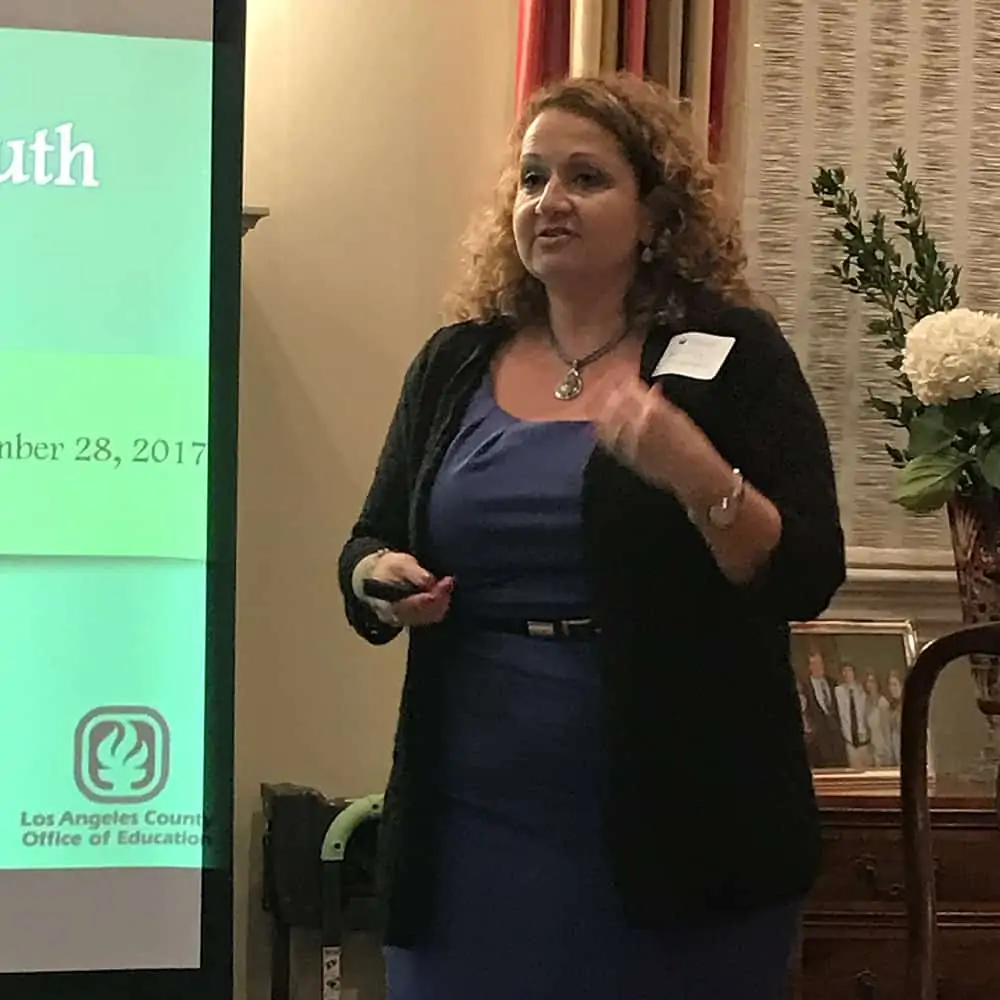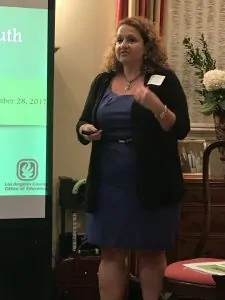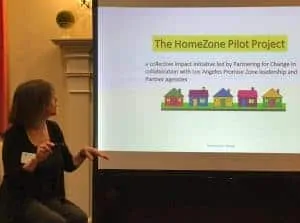
Impediments Confronting Homeless Children (September 2017)

As part of the Nancy Daly Salon Series, speakers Tanya Tull, ScD, Founder and President of Partnering For Change, and Melissa Schoonmaker, Consultant II, Homeless Education, Los Angeles County Office of Education (LACOE), shared their research on the large number of Los Angeles’ children affected by homelessness and the significant impact on their physical health, cognitive development and social and emotional well-being.
Schoonmaker, who serves as LACOE’s Homeless Liaison, supports 80 school districts and over 200 charter schools within Los Angeles County to meet the educational needs of the nearly 63,000 youth identified across the county as lacking a permanent home.
“Homeless children are more likely to be diagnosed with learning disabilities and more likely to score poorly on standardized assessments,” Schoonmaker said. “87% of such children do not finish high school.”
According to Schoonmaker, some of these problems can be alleviated with increased state and federal funding, a statewide data system and access to needed resources, such as school supplies, transportation and counseling. Schoonmaker believes that no single system can meet all of the needs of young children and parents experiencing homelessness; cross-system collaboration is critical. The goal is high quality, affordable housing, safe neighborhoods and improved physical and mental health.

“There is always something we can do. It may be out of the box, but that’s what innovation is all about,” Tull said.
For more information, visit Partnering for Change and LACOE

